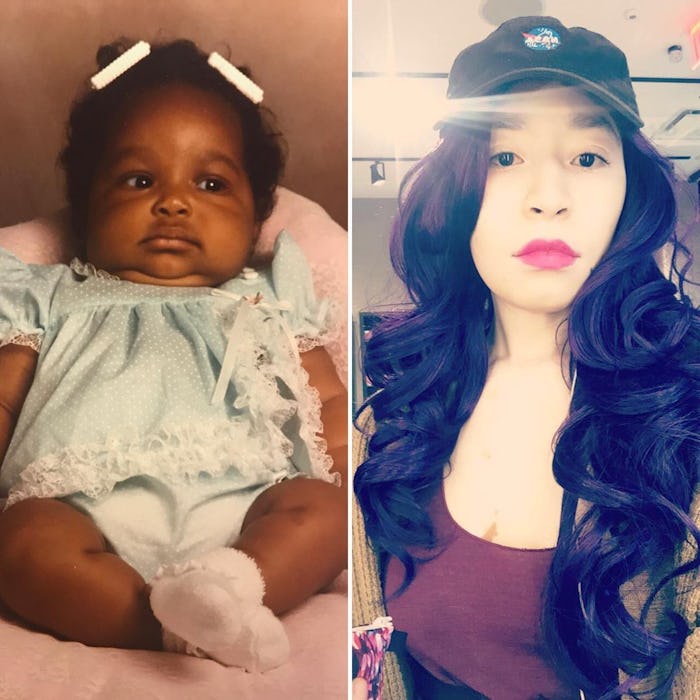Life

When Your Kids Point & Stare At Me, Here’s What I Want You To Know
It was 13 years ago, but I can still remember the first time someone's child pointed at me and made a cruel comment about my skin disorder as if it was yesterday. I was a junior in high school and a fellow student named Bob laughed while walking over to me in the lunch line, pointed at my face, then looked around to see if anyone else could hear him before he said, “Ew! Is that contagious?” Then he walked away, laughing along with other students as I used all the power within me to smile and avoid crying.
In 13 years I’ve grown used to being asked strange questions, laughed at, mocked, and stared at because of my vitiligo, a skin disorder that results in patches of depigmented skin all over my body. (Vitiligo is not contagious, just to be clear.)
Countless adult strangers have asked me things like, "Were you burned in a fire?” or, "What happened to your face?” or, "Why are you bleaching yourself?” My answer to any one of these questions depends on who is asking and how they ask. Generally, if someone is kind and seems genuinely curious I’ll explain what vitiligo is. While it can be taxing, I want to educate people so if and/or when they see someone else with vitiligo in the future they won't bother them.
But when a child points and stares, or whispers to their mortified caregiver, I struggle to respond.
Sometimes I feel like I’m an exhibit in a museum being greeted by wide eyes and mouths agape as onlookers try to find a small explanatory placard so they can figure me out. And even though this feeling is now part of my daily life, I can't grow completely comfortable living with it. I do my best to tap into as much of my inner confidence as I can, but there are days when simply leaving my home is incredibly difficult.
And, more often than not, it's kids who make it so difficult.
I wish parents would educate their children about the fact that people look different. I wish they would tell their kids that there's no such thing as a "normal" looking person. And I wish parents would teach their kids these simple lessons early on, so by the time they get to high school they don't feel compelled and empowered to bully, mock, point, and laugh at people like me.
These conversations, while important, are exhausting. They bring up painful memories. They're a constant reminder that, to some people, I am a mutant.
Parents, the earlier you teach your children that embracing our differences is a good thing, the sooner they'll be able to meet, see, and accept people for who they are, instead of judging them for what they look like.
Sometimes I’m tempted to talk to children myself if they stare at me or try to touch me or point and laugh. I want to tell them that people come in all different shapes, sizes, and colors, and that’s totally OK. But it would be great if parents started these conversations at home, to save people like me from using our emotional labor to educate others. These conversations, while important, are exhausting. They bring up painful memories. They're a constant reminder that, to some people, I am a mutant. (A word I have, by the way, been called numerous times.)
Look, I'm a mom, so I get it. Kids will be kids. Children don't automatically understand social etiquette, and more often than not speak sans filter. But it’s one thing to be curious and ask questions because something is new, and another to grow up believing it's acceptable to think people who look different are strange or abnormal.
Parents have to move beyond simply telling their kids it’s not polite to stare. They need to teach their kids to embrace diversity; to show them all the different ways that humans can look. Parents need to have these conversations more than once, and when their children are young, so that their kids grow up knowing that there's no such thing as looking "normal."
So please, parents, tell your kids that just because someone looks "different" doesn't mean that there is something weird, wrong, or scary about them. Please teach your kids that the person who looks different — the person like me — is just trying to live their lives and feel comfortable in their skin.
This article was originally published on